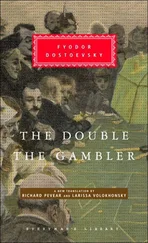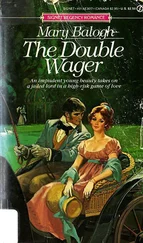“I understand the Long Island connection. What’s in Kentucky?”
“It’s where his mother was from. His mother was born and raised in Louisville.”
Katherine sighed and gave her arm a small squeeze. “When you first told me what you recognized in the snapshots, I thought he might have grown up near your swim club, too. Really, I did. And you might still be proven right. Who knows? But-”
“He was taking pictures of the house-his childhood house!-as late as the mid-1960s! I printed a couple just last night!”
“Or someone else was-perhaps at this woman’s request.”
“Look-”
“Laurel, this woman’s lawyer was pretty clear that his client’s brother died years ago. Decades ago. No one knows how Bobbie got the pictures and the negatives, but this woman wants you to leave them alone. And she wants us to give them back. Which we do not have to do-at least not yet-precisely because she insists that Bobbie wasn’t her brother. No relation. That’s the key, and that’s my point. As long as this Long Island dowager keeps saying that she and Bobbie aren’t related, then she isn’t an heir and thus can make no claim on the estate based on family.”
Laurel contemplated this for a moment: The irony wasn’t lost on her. If she acknowledged who Bobbie was, then Pamela Buchanan Marshfield would have reason to demand-and, perhaps, be given-the photographs. Apparently, there really were people out there who wanted them. Bobbie’s fears might have been disproportionate to reality, but they were not wholly delusional.
“If BEDS keeps the prints once I’m done working with them-” she began.
“Not BEDS, the City of Burlington. The legal term is escheat . Because Bobbie died without a will, his possessions go to the city to dispose of. And in Burlington that means selling the assets with the money going to the school system-though in this case I’m pretty sure the city will sell them to us for, say, a dollar, so we can use them as a fund-raiser.”
“Which is why you want us to hang on to them.”
“That’s part of the reason. But I also want them because they were the only thing in the world that mattered enough to one of our clients that he brought them with him wherever he went. We need to respect that. And I want us to give Bobbie the show he deserved. I love the idea of an exhibition reminding the city that the homeless are people, too, and have talents and dreams and accomplishments.”
“And so I can continue to print them.”
Katherine paused, and for a moment Laurel feared that she was going to tell her to stop. Finally: “Yes. Just…just remember that these photos belonged to a man who…who wasn’t who you imagine he was. And”-she looked at Laurel in a way the young social worker recognized because it was precisely the way her mother gazed at her when she was worried-“try not to talk to any lawyers who call you. But, if you must, certainly don’t insist that Bobbie was anyone’s brother. Okay?”
Laurel nodded, but she was so angry that she felt the corners of her eyes start to quiver. She was furious both because she felt she was being muzzled and because it was clear that not even Katherine believed what she knew was a fact.
Katherine gave her a hug and waved into her office at Tony, but he glared at the director with a look of such condescension and contempt that Katherine rolled inside like a wave and apologized to him formally. Then she turned from the two of them and started down the corridor. Before she was around the corner and gone, however, she stopped and added, “And I’m serious about this identity thing. Okay?”
Laurel nodded, but her mind was already on the photos and the work she would do that weekend in the university darkroom.
PATIENT 29873
…no interest in the other patients or socializing in the dayroom. Auditory hallucinations appearing to diminish, but still has denial of key event and significant gaps in memory compatible with dissociation.
From the notes of Kenneth Pierce,
attending psychiatrist,
Vermont State Hospital, Waterbury, Vermont
D AVID FULLER was sitting in the pediatrician’s waiting room with his older daughter on Friday morning, painfully aware that every plush animal, plastic toy, and glossy magazine was a veritable petri dish of infectious agents. Worse, the small children in the room with them were coughing and wheezing and sneezing. He wanted them quarantined somewhere far, far away from Marissa-who, at the moment, felt just fine. In fact, she was practically the only kid in her class who did not have strep throat. The only reason they were here was because a cut on the pinkie toe on her right foot wasn’t healing: too much time, he guessed, with sneakers, tap shoes, and ballet slippers rubbing against it.
Marissa, of course, was absolutely thrilled that the only moment their HMO-sanctioned pediatrician could see her was on a Friday morning-when she was supposed to be in math class. She sat beside him now on the orange Naugahyde couch, her uninjured foot curled up on the cushions beneath her thigh and her head buried in a Cosmo Girl! magazine that her father thought was completely inappropriate for this waiting room. (Just where, he wondered, was Highlights when you needed it?) He feared her silence had to do with the usually forbidden things she was getting to read about in the magazine. Consequently, to break the periodical’s spell, he asked (ponderously, he feared), “Other than your pinkie toe, how are you doing?”
“Okay.”
“Is the magazine really that enticing? I certainly hope you’re not taking too much pleasure in whatever decadence you’ve found-if only so your mother doesn’t kill me.”
“She won’t.”
“Anything on your mind?”
She looked up from her magazine. “You mean, like, right now?”
“Sure. What are you thinking about…like, right now?”
“Well, since you ask, Mom thinks Laurel is way too young for you.” His ex-wife, an attorney, was in court that morning.
“Why is your mother even worrying about the age of the women I’m seeing?”
“I don’t know.”
“Wrong question. Forgive me. Does it bother you that your mother is, suddenly, unnecessarily interested in Laurel ’s age?”
“Oh, it’s not sudden.” She dropped the magazine back into the rack beside the couch and yawned, then stretched. She leaned her head against the side of his arm.
“Thank you for letting me know,” he said simply.
“No problem.”
“So…does it bother you?”
“ Laurel ’s age? Nope.”
“Does it bother Cindy?”
“She is, like, totally unaware of age. For all she knows, Laurel is Mom’s age.”
“I think you can give your sister more credit than that.”
“Not much.”
“For a kid with a sore toe, you are impressively sassy this morning,” he said.
“Hey, it was pretty gross last night.”
“Uh-huh.”
“So?”
He pulled his arm free and wrapped it around her in a hug. “So, nothing. I’m glad we’re taking care of this.”
After a long moment in which neither of them said anything, she asked, “You seeing Laurel this weekend?”
“I am.”
“Tonight?”
“Yes.”
“Saturday, too? Or Sunday?”
He thought carefully about her inquiry. Was she asking because she wanted to see Laurel, or because she was worried that his girlfriend was going to impinge upon their time as a family? She and her sister had both been more clingy ever since their mother had announced she was going to marry Eric Tourneau, another lawyer in her firm, in November. Marissa probably didn’t view Laurel as an impediment to her parents ever reconciling-a reconciliation that was wholly inconceivable even before his ex-wife and Eric had fallen in love, but an idea that he understood a child might cling to tenaciously nevertheless-but perhaps she felt Laurel was stealing away her father’s attention.
Читать дальше












